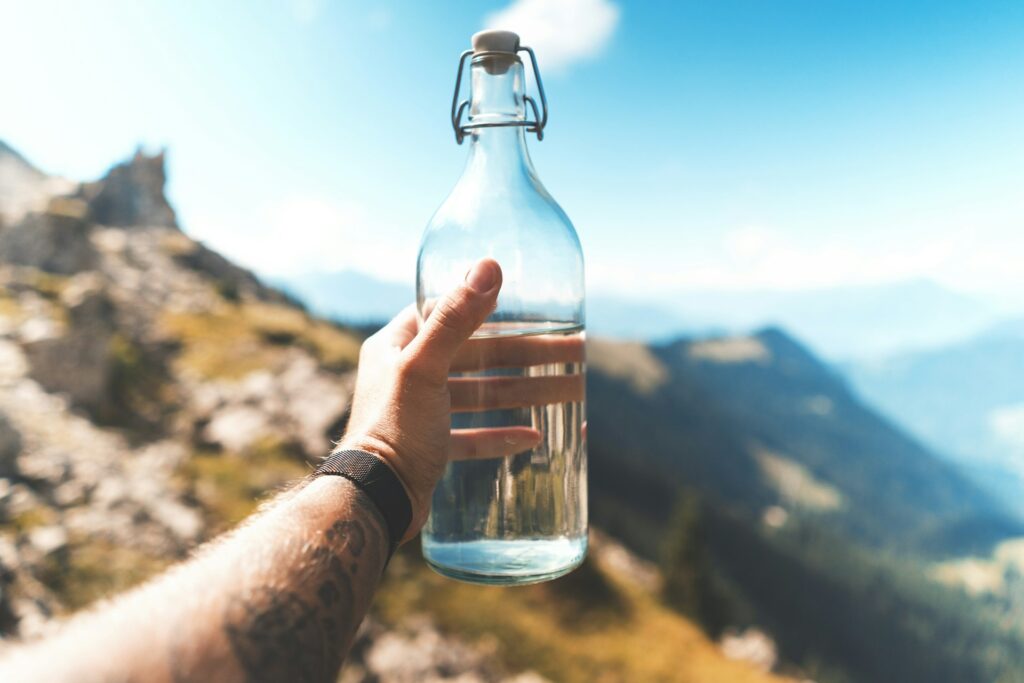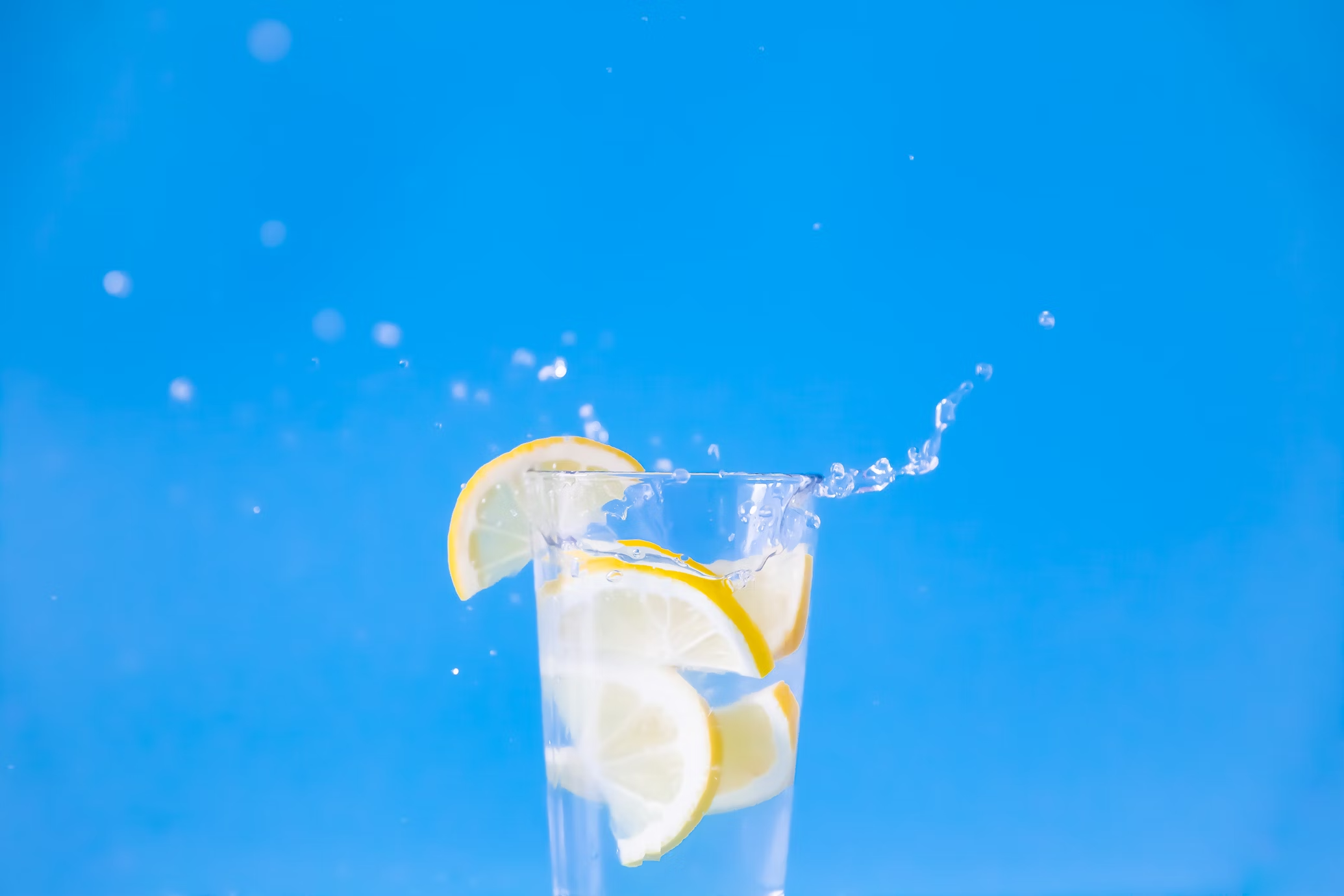Why Staying Hydrated is Key to Boosting Your Metabolism

Imagine your metabolism as a roaring furnace. Without enough water, that fire sputters, struggling to burn calories efficiently. Hydration isn’t just about quenching thirst—it’s the silent partner in your body’s metabolic machinery. In this article, we’ll explore how water intake directly impacts metabolic rate, debunk common hydration myths, and provide actionable strategies to turn hydration into a tool for better health.
The Science of Hydration and Metabolism
Water: The Unsung Hero of Cellular Energy
Every cell in your body relies on water to function. From breaking down nutrients to producing ATP (adenosine triphosphate)—the energy currency of cells—hydration is non-negotiable. A 2021 study published in Frontiers in Nutrition revealed that individuals who maintained optimal hydration saw a 5% increase in resting metabolic rate compared to those who were mildly dehydrated.
When you’re dehydrated, blood volume drops, forcing your heart to work harder to circulate oxygen and nutrients. This extra effort diverts energy away from calorie-burning processes, effectively slowing metabolism. Think of water as the oil that keeps your metabolic engine running smoothly.
Debunking the “8 Glasses a Day” Myth
The “one-size-fits-all” hydration rule is outdated. Your water needs depend on weight, activity level, and environment. For example:
- A sedentary office worker in a temperate climate needs less water than a construction worker in the desert.
- A 150-pound person requires approximately 100 ounces of water daily (calculated as body weight in pounds × 0.67).
But here’s a game-changer: 20% of your hydration can come from water-rich foods. Cucumbers, watermelon, and spinach are not just snacks—they’re stealthy hydration boosters.
5 Warning Signs You’re Sabotaging Your Metabolism
1. Midday Fatigue
Dehydration reduces blood volume, limiting oxygen delivery to muscles and organs. The result? A 3 PM energy crash that coffee can’t fix.
2. Sugar Cravings
Your liver needs water to release stored glycogen (sugar). When dehydrated, it sends emergency signals for quick energy, triggering cravings for cookies or candy.
3. Dry, Flaky Skin
Your skin is a detox organ. Without enough water, toxins accumulate, and metabolic waste isn’t flushed efficiently. This leads to dullness, breakouts, or eczema flare-ups.
4. Infrequent Urination
Dark yellow urine is a red flag. It means your kidneys are conserving water, leading to concentrated waste that strains metabolic processes.
5. Exercise Burnout
A 2% drop in body fluid reduces workout endurance by 25%, according to the Journal of Sports Sciences. Dehydration forces muscles to fatigue faster, cutting your calorie-burning potential.
Hydration Hacks to Supercharge Your Metabolism
Timing Is Everything
- Morning Ritual: Start your day with 16 ounces of lukewarm water and lemon. This kickstarts digestion and balances pH levels.
- Pre-Meal Hydration: Drink 8 ounces of water 30 minutes before eating. It curbs overeating and primes stomach acids for nutrient breakdown.
- Post-Workout Recovery: After sweating, replenish with electrolyte-enhanced water. Add a pinch of Himalayan salt to restore sodium and potassium.
Flavor Without the Guilt
Plain water can feel monotonous. Try these twists:
- Infuse a pitcher with mint, sliced strawberries, or ginger.
- Sip herbal teas like hibiscus or chamomile (avoid caffeine-heavy options).
- Invest in a copper bottle—studies suggest it may improve water’s alkalinity and absorption.
Tech to the Rescue
Apps like Waterllama or Hydro Coach send reminders and track intake. Pair them with a smart bottle like HidrateSpark, which glows when it’s time to drink.
Common Myths About Hydration and Metabolism
Myth 1: “Cold Water Burns More Calories”
Technically true—but barely. Drinking iced water burns ~8 extra calories per glass as your body warms it. While every bit counts, don’t rely on this for weight loss.
Myth 2: “Herbal Tea Doesn’t Hydrate”
False. Herbal teas (like rooibos or peppermint) contribute to hydration. However, limit diuretics like black tea or coffee, which can dehydrate.
Myth 3: “Thirst Means You’re Already Dehydrated”
Partially true. Thirst is an early warning sign. By the time you feel parched, you’re already 1-2% dehydrated. Sip water consistently, not just when thirsty.
FAQs: Your Hydration Questions Answered
Q: How does hydration affect weight loss?
Water suppresses appetite, prevents mistaking thirst for hunger, and supports lipolysis (fat breakdown).A 2016 study in Obesity found that overweight adults who drank 16 ounces of water before meals lost 44% more weight over a 12-week period.
Q: Can you drink too much water?
Yes. Overhydration (hyponatremia) dilutes sodium levels, causing nausea or confusion. Stick to your body weight formula and adjust for activity.
Q: Do sparkling water or sports drinks count?
Sparkling water hydrates but may cause bloating. Sports drinks are useful during intense exercise but often contain added sugars. Opt for electrolyte tablets instead.
The Future of Hydration: What Science Says
Researchers are exploring advanced hydration strategies:
- Personalized Water Bottles: AI-driven bottles that adjust intake goals based on your biometrics.
- Hydrogen-Infused Water: Early studies suggest it may reduce inflammation and enhance recovery.
- Hydration and Aging: A 2023 Nutrition Reviews paper linked chronic dehydration to accelerated cellular aging.
Your Action Plan
- Calculate your daily water needs using the formula: Body Weight (lbs) × 0.67 = Ounces per Day.
- Set hourly reminders to sip water—consistency trumps chugging.
- Add two water-rich foods to your daily diet (e.g., celery, oranges).
Final Thoughts
Hydration is the simplest yet most overlooked metabolic hack. By aligning your water intake with your body’s needs, you’ll unlock higher energy, efficient calorie burn, and long-term vitality. Remember: Your metabolism isn’t just about what you eat—it’s about what you drink.
Ready to Take Charge?
